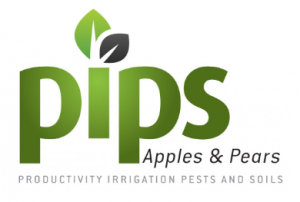
Hort Innovation has kicked off the third Apple and Pear industry Productivity, Irrigation, Pests and Soils (PIPS3) program. The program covers apple and pear orchards across the country and focuses on new technology and advanced management systems and applying integrated biological management to pests, diseases and soil. The four projects involved have been developed to conduct integrated research activities and provide whole orchard system outputs and outcomes for the apple and pear industry.
AP19002: Strengthening Cultural and Biological Management of Pests and Diseases in Apple and Pear Orchards is being led by Agriculture Victoria’s Senior Research Scientist- Invertebrate and Weed Sciences, Greg Lefoe. In this video he provides an overview of how the research will be undertaken and the outcome benefits for pear growers and their business sustainability and profitability.
The project will demonstrate the efficacy of biological control methods and increase knowledge in soil health and biodiversity improvement strategies that will support low input pest and disease management practices, without sacrifice to plant health, yield and quality.
Emanating from previous PIPS research, priority has been given to demonstrating establishment of Mastrus ridens (Mastrus), a parasitoid wasp, and its efficacy as a biological control against codling moth (CM). Previous successful parasitoid release sites resulted in the apparent control of CM to the extent that populations, and the wasps, were difficult to detect in the following season. The project is directly addressing issues related to the assessment of factors affecting Mastrus performance in the field by developing and trialling methods for monitoring establishment and performance.
Researchers at Agriculture Victoria are collaborating with Tasmanian Institute of Agriculture (AP19006) researchers to evaluate the impact of improving biodiversity above and below the orchard floor as a cultural practice to support biological control agents that sustainably manage pests and soil organisms known to cause disease.
Outcomes:
- Commercialisation/implementation plan developed for Mastrus.
- High level understanding of the interactions between cultural (including soil health), biological and chemical practices in IPDM.
- Advisors and consultants more confident in providing IPDM advice to apple and pear growers, particularly through increased participation on the Australian Apple & Pear IPDM Community of Practice (CoP)
- Adoption of effective, sustainable, low-input pest management
This project has been funded by Hort Innovation using the apple and pear research and development levy, contributions from the Australian Government and co-investment from Agriculture Victoria. Hort Innovation is the grower-owned, not-for-profit research and development corporation for Australian horticulture.


